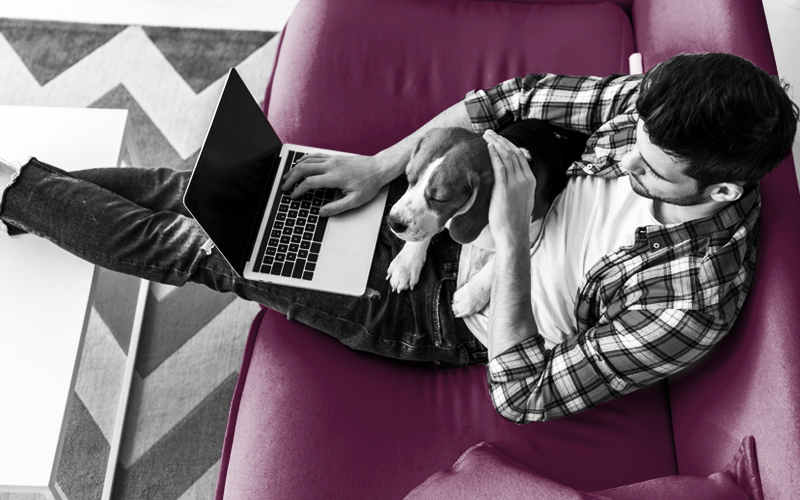Written by: Dean Rajh-Gopaul, Head of Strategy
Has the lock-down had hidden benefits for staff and corporates? The previous article, The New Normal discussed an overview of what the world might be like post quarantine, this article takes a closer look at the workspace.
When the number of COVID-19 cases began escalating, many corporates took the decision to send their staff home and have them work from there. Once the lock-down came into effect, these companies had already established their “work from home” protocols and were more or less into the swing of things.
With a strong likelihood of the lock-down being further extended, having successful processes and protocols for working from home is more important than ever. Companies need to find ways of keeping the wheels turning through this isolation period. Slow progress is still better than no progress.
This epidemic has no doubt been a tragedy and brought any economic growth to a grinding halt, but due to it, we’ve had to adapt and find new ways of working, with some key lessons being learnt along the way.
Without the need to travel to the office, traffic has become irrelevant. On average staff will save an extra hour a day (30 min each way). That hour can be used for a variety of things from exercise, getting a head start to emails or just sleeping in a bit. In a world where everyone is trying to squeeze more out of their days, this lock-down might be a blessing in disguise. The cost savings on petrol, as well as the wear and tear on vehicles over a 12-month period will also be substantial. We save both time and money by working from home, not to mention that our respective carbon footprints will be reduced. Save time, money and the environment, seems like a no brainer doesn’t it?
Even parents with toddlers and newborns could save the money as they may no longer need a nanny or daycare.
But what about productivity? How productive are staff from home? From a cursory glance, it seems to vary, some staff are much more productive as there as fewer distractions, particularly introverts who thrive in isolation, while others flounder without any interaction and get easily distracted by the fridge, TV or the dog next door. How many companies have actually developed successful “work from home” protocols? How many have implemented them correctly and are seeing the benefits? If anything, this shows how much staff can really be trusted as there’s no physical oversight to ensure delivery on projects.
If working from home is proving to be fruitful, it begs the question, “Do you really need an office”? Obviously, this is very industry and company dependent, but if the answer is, “No we don’t”, then will we return back to the office once the lock-down is over? Many companies may well close their office doors in favour of a “work from home” policy. What does that then mean for the market?
How does this affect the rollout of infrastructure? Does fiber and 5G now take priority for rollout since it is a core need for this model to work?
How does this impact the hiring of staff? Offices don’t need to be disabled friendly since any disabled staff will be working from home, just like everyone else. Talent from smaller towns on the city outskirts can work for large corporates without needing to take multiple taxis and trains, their time saving will be 2-3 hours. What is the cost of transport vs a 3G personal modem (or a 5G one)?
Companies will need to save and box smart once the lock-down is over. The economy will need time to recover and any cost saving will be welcomed. One way to save a large amount of money is removing the fixed cost of the office space. The savings can then be used to hire more staff and increase the company’s capacity once the economy starts showing signs of life again. The extra money could also be used to increase salaries, offer more attractive packages or even pad bonuses.
But what about the office spaces left vacant? The corporate real estate business will have to carry the burden, meaning lower prices for offices due to a relative higher supply and lower demand. Can these spaces be repurposed, and to what?
We have had to adapt and the results of this new way of working cannot be unseen, the question is, how much will we carry over once the lock-down is lifted?


































